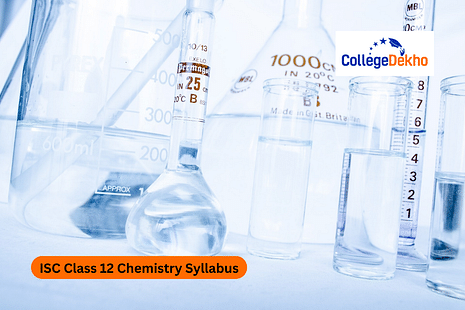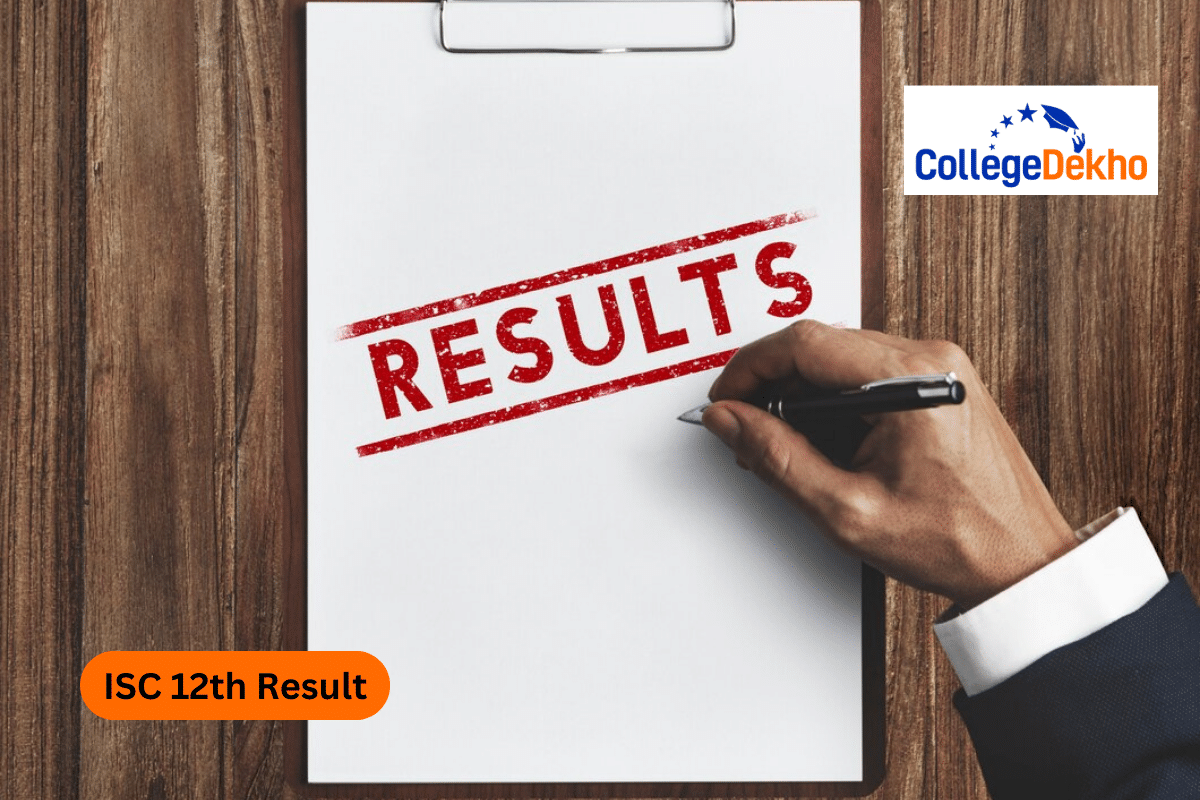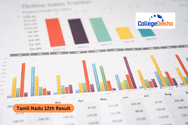- About ISC Class 12 Chemistry Syllabus 2024-25
- ISC Class 12 Chemistry Syllabus 2024-25 Download PDF
- ISC Class 12 Chemistry Syllabus 2024-25 Course Structure
- ISC Class 12 Chemistry Syllabus 2024-25 Units
- ISC Class 12 Chemistry Syllabus 2024-25: Internal Assessment
- ISC Class 12 Chemistry Question Paper Design 2024-25
- ISC Class 12 Chemistry Books 2024-25
- Preparing For ISC Class 12 Chemistry Exam 2024-25
- Faqs


Never Miss an Exam Update
About ISC Class 12 Chemistry Syllabus 2024-25
The Council for the Indian School Certificate Examinations (CISCE) released the revised ISC 12th Chemistry Syllabus 2025 on their official website at cisce.org. The syllabus comprises 3 subdivisions - Physical Chemistry, Inorganic Chemistry, and Organic Chemistry. According to the revised curriculum, the number of units has been reduced from 16 to 10. The total marks for the theory exam will be 70 marks, and the remaining 30 marks will be for practical and project work. The theory paper will consist of very short or objective answer questions, short answer questions, and long answer questions. Students can also download the
ISC Class 12 Chemistry Previous Year Question Paper
to get detailed information about the exam format.
Organic chemistry will carry the maximum weightage of 31 marks in the exam, so the students must prepare it in detail. CISCE will start conducting the ISC Class 12 Exams 2025 in February-March 2025. Students will be required to obtain a minimum of 40% marks in each subject to clear the exams. Here, the latest and updated details on ISC 12th Chemistry Syllabus 2024-25 have been provided.
Also Read: ISC Class 12 Chemistry Sample Papers
ISC Class 12 Chemistry Syllabus 2024-25 Download PDF
Students can check and download the ISC Class 12 Chemistry Syllabus 2024-25 PDF here.
ISC Class 12 Chemistry Syllabus 2024-25 Course Structure
Students can refer to the table below to have an overview of the revised course structure of the ISC class 12 Chemistry syllabus:
S.No. | Units | Marks Allotted |
|---|---|---|
1 | Solutions | Physical Chemistry (25 Marks) |
2 | Electrochemistry | |
3 | Chemical Kinetics | |
4 | d -and f -Block Elements | Inorganic Chemistry (14 Marks) |
5 | Coordination Compounds | |
6 | Haloalkanes and Haloarenes | Organic Chemistry (31 Marks) |
7 | Alcohols, Phenols and Ethers | |
8 | Aldehydes, Ketones and carboxylic acids | |
9 | Organic Compounds containing nitrogen | |
10 | Biomolecules | |
Total | - | 70 Marks |
Also Read: ISC Class 12 Exam Pattern
ISC Class 12 Chemistry Syllabus 2024-25 Units
Students can check the detailed information about the topics that are included in every unit that will be appearing in the board exam from the table given below:
Units | Topics |
|---|---|
Solutions | Study of concentration of solutions of solids in liquids, liquid in liquid, solubility of gases in liquids, solid solutions, Colligative properties - Raoult's law of relative lowering of vapour pressure (1st & 2nd), elevation of boiling point, depression of freezing point, osmotic pressure. Use of colligative properties in determining molecular masses of solutes, abnormal molecular mass association and dissociation, van't Hoff factor. |
Electrochemistry | Electrolytic and electrochemical cells, Redox reactions in electrochemical cells, Electromotive Force (emf) of a cell, standard electrode potential, Nernst equation and its application to chemical cells, Relation between Gibbs energy change and emf of a cell, Conductance in electrolytic solutions, specific, equivalent and molar conductivity, variations of conductivity with concentration, graphs; Kohlrausch's Law of electrolysis and Faraday’s Laws of electrolysis, Dry cell and lead accumulator, fuel cells, corrosion. |
Chemical Kinetics | Meaning of Chemical Kinetics – slow and fast reactions, Rate of a reaction - average and instantaneous rate (graphical representation), Factors affecting rate of reaction: surface area, nature of reactants, concentration, temperature, catalyst and radiation, Order and molecularity of a reaction, rate law and specific rate constant, Integrated rate equations and half-life (only for zero and first order reactions), concept of collision theory (elementary idea, no mathematical treatment), Concept of threshold and activation energy, Arrhenious equation. |
d -and f -Block Elements | Position in the periodic table, occurrence, electronic configuration and characteristics of transition metals, general trends in properties of the 3d-series of transition metals - metallic character, ionisation enthalpy, oxidation states, ionic radii, colour of ions, catalytic property, magnetic properties, interstitial compounds, alloy formation, preparation and properties of K2Cr2O7 and KMnO4, Lanthanoids and actinoids. |
Coordination Compounds | Concept of complexes, definition of ligands, coordination number, oxidation number, IUPAC nomenclature of mononuclear coordination compounds, Isomerism (structural and stereo), Bonding, Werner's theory, VBT and CFT, Colour, magnetic properties and shapes, Importance of coordination compounds (in qualitative analysis, extraction of metals and biological system). |
Haloalkanes and Haloarenes | Haloalkanes: General formula, nomenclature and classification, Nature of C–X bond, physical and chemical properties, mechanism of substitution reactions, optical rotation Haloarenes: Basic idea, nature of C–X bond, substitution reactions (directive influence of halogen in mono substituted compounds only), Uses and environmental effects of - dichloromethane, trichloromethane, tetra-chloromethane, iodoform, freons and DDT. |
Alcohols, Phenols and Ethers | Alcohols: Classification, general formula, structure and nomenclature, Methods of preparation, physical and chemical properties (of primary alcohols only), identification of primary, secondary and tertiary alcohols, mechanism of dehydration, uses with special reference to methanol and ethanol Phenols: Classification and nomenclature, Methods of preparation, physical and chemical properties, acidic nature of phenol, electrophilic substitution reactions, uses of phenols Aliphatic Ethers: General formula, structure and nomenclature, Methods of preparation, physical and chemical properties, uses. Aryl ethers: Physical properties – state and solubility Chemical properties – preparation of anisole (Williamson’s synthesis), electrophilic, substitution (halogenation, nitration and Friedel-Crafts reaction), Use of ether |
Aldehydes, Ketones and carboxylic acids | Aldehydes and Ketones: Nomenclature, structure of methods of preparation of aldehydes and ketones, physical and chemical properties, mechanism of nucleophilic addition, reactivity of alpha hydrogen in aldehydes and uses Carboxylic Acids: Classification, general formula and structure of carboxylic group, Nomenclature, acidic nature, methods of preparation, physical and chemical properties and uses. |
Organic Compounds containing nitrogen | Aliphatic Amines: General formula and, classification of amines, Structure of the amino group, nomenclature. Methods of preparation, physical and chemical properties, uses, identification of primary, secondary and tertiary amines Aniline: Preparation reduction of nitrobenzene, Physical properties – state, solubility and boiling point, Chemical properties:- (Reaction with HCl and H2 SO4, Acetylation, alkylation, Benzoylation, Carbylamine reaction, Diazotisation, Electrophilic substitution (bromination, nitration and sulphonation), Tests for aniline, Uses of aniline Cyanides and Isocyanides: Methods of preparation, Cyanides: - From alkyl halide, From amide, Isocyanides: -From alkyl halide, From primary amines Diazonium salts: Preparation, chemical reactions and importance in synthetic organic chemistry |
Biomolecules | Carbohydrates– Definition, Classification (aldoses and ketoses), monosaccharides (glucose and fructose), D-Lconfiguration oligosaccharides (sucrose, lactose, maltose), polysaccharides (starch, cellulose, glycogen); Importance of carbohydrates Proteins– structural units of proteins, Basic idea of - amino acids, peptide bond, polypeptides, proteins, structure of proteins- primary, secondary, tertiary structure and quaternary structures (qualitative idea only), denaturation of proteins, Enzymes, hormones- elementary idea only Vitamins- Classification and functions, Vitamins A, B, C, D, E and K: classification (fat soluble and water soluble), deficiency diseases, (Chemical names and structures are not required) Nucleic Acids- DNA and RNA |
Also Read: ISC 12th Toppers
ISC Class 12 Chemistry Syllabus 2024-25: Internal Assessment
The practical exam of ISC Class 12 Chemistry will be conducted for 30 marks. The marks division is mentioned below:
Specifications | Marks |
|---|---|
Practical Work | 15 marks |
Project Work | 10 marks |
Practical File | 5 marks |
ISC Class 12 Chemistry Question Paper Design 2024-25
The theory paper in Chemistry will be conducted for 70 marks. Students can check the question paper design from the pointers given below:
- The duration of the paper will be three hours.
- This paper is divided into four sections – A, B, C and D.
- Section – A consists of one question having sub-parts of one mark each.
- Section – B consists of ten questions of two marks each.
- Section – C consists of seven questions of three marks each, and
- Section – D consists of three questions of five marks each.
- Internal choices have been provided in one question each in Section B, Section C and Section D.
ISC Class 12 Chemistry Books 2024-25
There are a lot of side books that students can consider when preparing for Chemistry. Check some recommendations from the pointers given below:
- Nootan ISC Chemistry Class 12 2024-25 Examination
- Chemistry Simplified NCERT Class 12
- All In One Chemistry Class 12th Based On Latest NCERT For CBSE Exams 2025
- New Era Chemistry
- Oswaal ISC Class 12 Chemistry Question Bank Book (For 2025 Exam)
Preparing For ISC Class 12 Chemistry Exam 2024-25
A few tricks can be considered by the students when preparing for the ISC Class 12 Chemistry Exam 2024-25 such as:
- Clear your concepts before moving forward with another chapter, numerical, or sample papers. Make sure that you understand a unit in detail before you continue to solve the question papers.
- Use flashcards to remember important information because it will help you to revise quickly before the exams.
- Make sure that your periodic table is at your fingertips. It is important to have detailed knowledge of basic terms in Chemistry to score high marks.
- Always solve sample papers available on the official website of CISCE to understand the exam format and the commonly asked topics.
- Make a separate notebook for formulas and regularly solve numerals. Make sure to also take care of your mental and physical well-being.
Since the ISC Class 12 Chemistry Syllabus 2024-25 is now readily available on the official website of CISCE, students should download it to plan out their studies. Make sure to include every unit in your study plan so that you can get the best marks.
FAQs
Yes, CISCE revised the ISC Class 12 Chemistry Syllabus 2024-25 along with 13 other subjects last year and this year too. As per the revised ISC Class 12 Chemistry Syllabus 2024-25, 6 units are being removed.
You need to visit the official website of CISCE to access the ISC Class 12 Chemistry Syllabus 2024-25 PDF. You can download the latest syllabus by clicking on the ISC Examination option present on the menu bar.
Organic Chemistry carries the maximum weightage in the ISC Class 12 Chemistry Syllabus 2024-25. This section consists of 31 marks in the exam.
According to the ISC Class 12 Chemistry Syllabus 2024-25, there are 10 units in the exam. The syllabus is also divided into 4 parts: Physical Chemistry (25 Marks), Inorganic Chemistry (14 Marks), and Organic Chemistry (31 Marks).
Was this article helpful?















